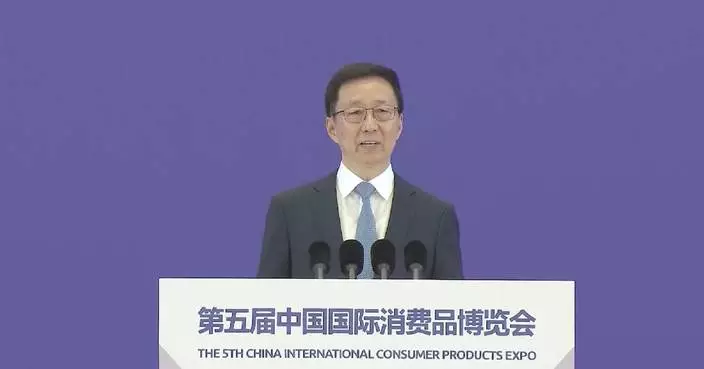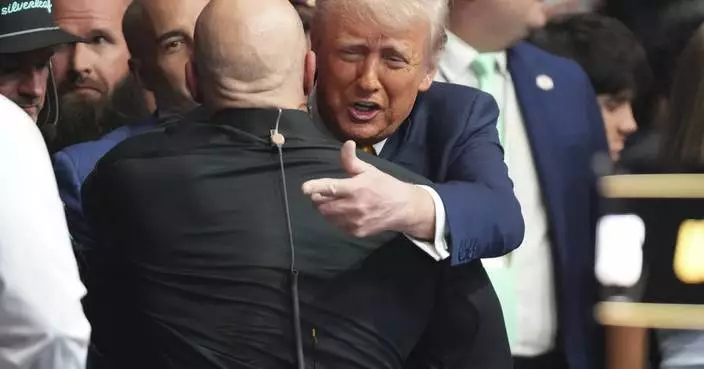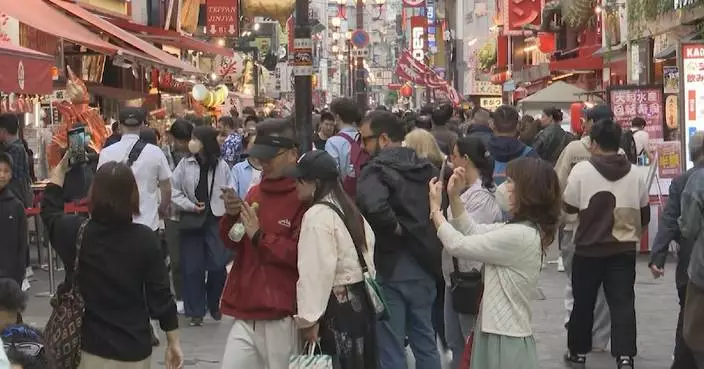The Indian stock market opened in the red on Thursday as Indian exports to the U.S. face a 27 percent tariff according to the United States' latest trade policy under President Donald Trump.
Economists are warning of the potential impacts on the Indian economy, while the country's Department of Commerce is examining the implications.
Market experts say that Indian equities are likely to experience some fluctuations but will recover after initial losses.
"Tariff means high cost. It means slightly low exports. So the stock markets will react negatively on the first day, but by the second day they will realize that it is basically relative disadvantage," said Ajay Srivastava, founder of the Global Trade Research Initiative.
"The worst depression that the global economy has seen in history happened because of the trade war that U.S. had unleashed, and I think we should be reminding ourselves to also be very resolute about what is going on," said Biswajit Dhar, an expert in international trade.
Other Asian countries face a similar situation, but with even higher tariffs. Experts say investors may relocate to India but with conditions.
"Some investors may feel for some labor intensive goods like electronics or garments and textiles, there is a possible chance to relocate to India, but investor needs certainty. They cannot operate in uncertain environment," said Srivastava.
The tariff move is part of the U.S. broader strategy to address the 46-billion-dollar trade deficit between the two countries. Trump has defended his policy, saying that these tariffs are designed to "level the playing field" and encourage fairer trade practices.

Indian stock market opens in red after Trump announces 27 percent tariff

Indian stock market opens in red after Trump announces 27 percent tariff
The fifth China International Consumer Products Expo (CICPE), which opened on Sunday in Haikou city, south China's Hainan Province, provides a platform for high-level business cooperation amid rising pressure from U.S. tariff, said exhibitors.
More than 1,700 companies from 71 countries and regions are participating in China's only national-level exhibition focused on consumer goods, showcasing over 4,100 brands.
Amid the U.S. tariff turmoil, the expo positions Hainan as a gateway for global trade, leveraging its free trade port policies—zero tariffs on imports and streamlined customs—to attract foreign investment.
"For trade relations, Canada and China are very strong, so we want to continue to develop those relationships. So I'm meeting a lot of buyers here now, and I'm very excited to continue to grow here," said Papil Kalra, an exhibitor from Naturemary, a skincare product company in Canada.
"We, as Wild, have been here at the Hainan expo as of the beginning. So we were (here since) first time, now I think the 5th time. we really love the interesting and high-quality oral care products, which we produce in Switzerland, which we get here. Hainan, for the moment, it's a must for me," said Christoph Wild, executive board member of Dr. Wild and Co. AG, a medicine company in Switzerland.
The expo has debuted AI, low-altitude aviation, and green tech zones, featuring humanoid robots, electric vertical takeoff jets, and eco-friendly innovations.
For Chinese companies, it offers a platform to go global.
"This marks our second year participating in Hainan Expo, not only showcasing Florasis' technological innovations in beauty, but also exploring new opportunities for further international development," said Zeng Min, general manager of public affairs of Florasis, a cosmetics company in China.

China International Consumer Products Expo provides platform for cooperation: exhibitors





















































